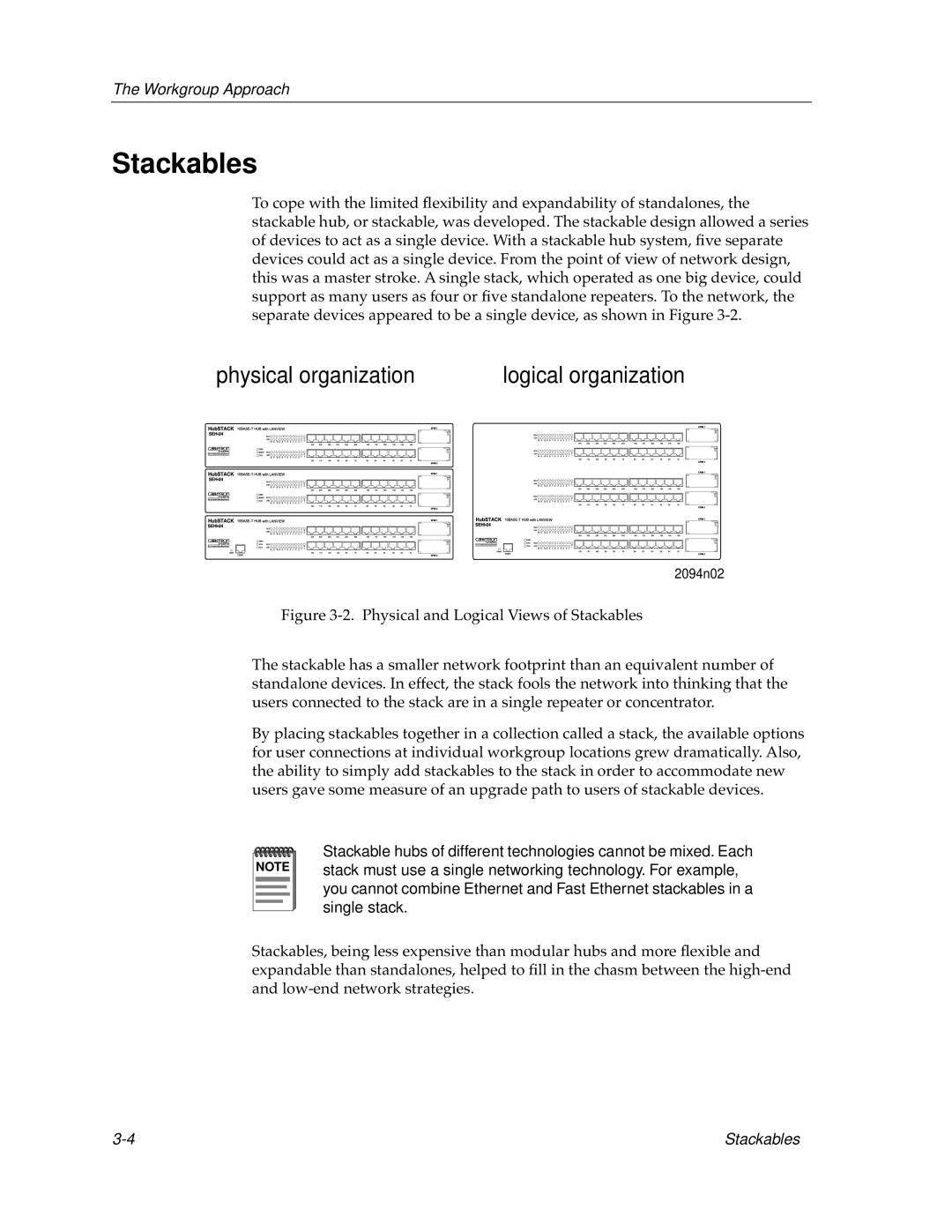
The Workgroup Approach
Stackables
To cope with the limited flexibility and expandability of standalones, the stackable hub, or stackable, was developed. The stackable design allowed a series of devices to act as a single device. With a stackable hub system, five separate devices could act as a single device. From the point of view of network design, this was a master stroke. A single stack, which operated as one big device, could support as many users as four or five standalone repeaters. To the network, the separate devices appeared to be a single device, as shown in Figure
physical organization |
|
|
|
|
| logical organization |
|
|
| |||||||||||||
|
|
|
|
|
|
|
|
|
|
|
|
|
|
|
|
|
|
|
|
|
|
|
|
|
|
|
|
|
|
|
|
|
|
|
|
|
|
|
|
|
|
|
|
|
|
|
|
|
|
|
|
|
|
|
|
|
|
|
|
|
|
|
|
|
|
|
|
|
|
|
|
|
|
|
|
|
|
|
|
|
|
|
|
|
|
|
|
|
|
|
|
|
|
|
|
|
|
|
|
|
|
|
|
|
|
|
|
|
|
|
|
|
|
|
|
|
|
|
|
|
|
|
|
|
|
|
|
|
|
|
|
|
|
|
|
|
|
2094n02
Figure 3-2. Physical and Logical Views of Stackables
The stackable has a smaller network footprint than an equivalent number of standalone devices. In effect, the stack fools the network into thinking that the users connected to the stack are in a single repeater or concentrator.
By placing stackables together in a collection called a stack, the available options for user connections at individual workgroup locations grew dramatically. Also, the ability to simply add stackables to the stack in order to accommodate new users gave some measure of an upgrade path to users of stackable devices.
NOTE |
Stackable hubs of different technologies cannot be mixed. Each stack must use a single networking technology. For example, you cannot combine Ethernet and Fast Ethernet stackables in a single stack.
Stackables, being less expensive than modular hubs and more flexible and expandable than standalones, helped to fill in the chasm between the
Stackables |
